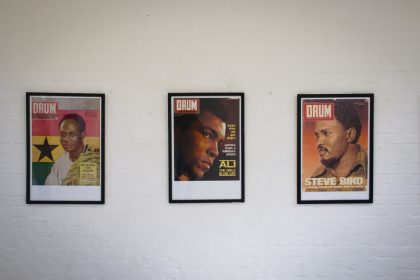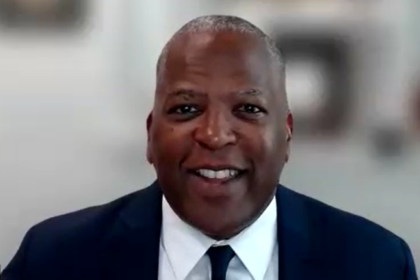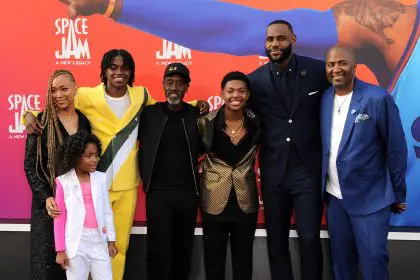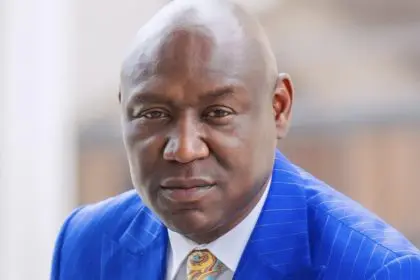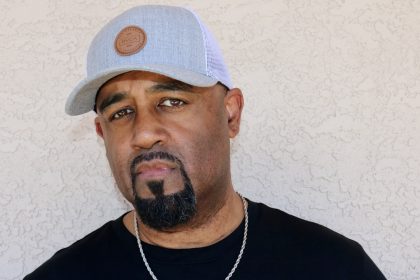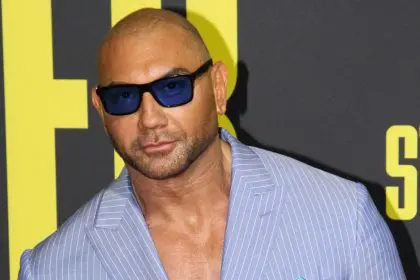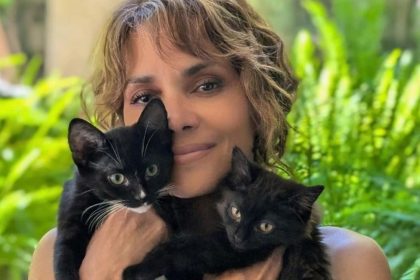
This just might be Tarell Alvin McCraney’s best year yet. Despite his humble beginnings, growing up in the rough Liberty City housing projects in Miami, he’s now living what one might consider his best life ever. If you haven’t heard of him before now, come Oscar time 2017, his name will be echoing in the streets of Hollywood. McCraney is the man responsible for the 2017 Best Picture Oscar buzz movie Moonlight. And if you haven’t gone to see the movie yet, it’s definitely worth a viewing.
The movie touches on some unconventional issues in the Black community that both McCraney and director Barry Jenkins brought to the big screen in such a raw and uncut way. The movie manages to somehow come across as being so real and gut-wrenchingly life-like, but also provocatively beautiful at the same time.
Rolling out sat down with McCraney to get his views on the film that has so much Oscar buzz that people are calling it a sure-win. Check out his interview below to read what he had to say about his barrier-breaking film.
Tell us about your story and what you wanted to accomplish by telling it now in today’s current climate. Tell us what you wanted to accomplish by bringing your story to life.
Well, when I wrote the script In Moonlight Black Boys Look Blue it was 2003, so I was 22 years old. I had just graduated from Dupaul University. I had taken a year off from school because my mother had just passed away, She died from AIDS-related complications in the summer of 2003. So, I started to write the script then. Essentially, it was me trying to figure out my childhood, growing up in Liberty City, specifically. When I was a kid, my mom was dating a drug dealer who was like a father to me. He was not my biological father, but he was everything like one. And as I got older, I was bullied in school and I had trouble with my own identity in trying to figure out my life. My mother suffered from severe addiction most of my life and then I lost her when I was 22 years old. So, it was me just trying to figure out what life looked like for us growing up in Liberty City. Often, when people talk about the Black community or southern Black communities especially, we rarely hear people talk about Miami. And we have one of the oldest black communities in Florida, specifically in Miami and one of the largest. We lived in and around a neighborhood that’s in Liberty Square. It’s one of the oldest housing projects around the country; I think it’s the second oldest and probably one of the largest. So, the life of poor Black people has been around me my entire life and I’ve been in it my entire life. I just wanted to create something about it.
You mentioned that you were 22 years old when you wrote the script In Moonlight Black Boys Look Blue right after your mother died, nut now it’s 2016. Why did you wait so long to do something with the script?
I didn’t do anything with the script for a long time, mostly because it was a personal memoir. I’ve written other plays. I’ve written lots of plays, and worked with people about other things. And it wasn’t until Berry Jenkins approached me through mutual friends at the Borscht Film Festival … [These friends] who had been working with us on other projects said, “You guys grew up in the same neighborhood, in the same housing projects and you don’t know each other.” We grew up three blocks away from each other, and we didn’t know each other at all. So, then they connected us. Barry had made this film called Medicine for Melancholy, which had great acclaim and opened up at Telluride and he was looking for another project, but he didn’t necessarily know that it was this one. He read it, and it took him a minute, but then he came back and said “…look, I want to write this into a screenplay that we can shoot.” He came back with that screenplay and it had preserved everything that I’d written before. I think a year after that we were here in Miami filming. So, he got A24 to sign on and Plan B signed on after that, which is Brad Pitt’s production company – well, they both came to the table at the same time. And that’s how Moonlight was made.
The movie touches on some very taboo and heavy topics in our communities such as struggling with your identity, race and culture. How comfortable did you feel telling your story?
Again, at that time, I wasn’t even thinking about it being in front of a lot of eyes. I knew at some point, if I could make it into something, I would and I would want it to be shown. But at that time, I was just a kid trying to grieve you know? I was honestly just trying to remember my life as best I could. If I was a basketball player I might’ve gone to the court and played hard, but I was a writer, I was an artist. So, that was the best way I could try to figure out what was going on. So, there was no “Oh, I’m going to lay it all out on the table.’ There was no feeling of that. And I want people to know that. I understand talking about things in our community that aren’t easy, that are complex that we need healing on, that we need to figure out. But I understand that sometimes we don’t want to have those conversations in front of everybody. But, at the same time, I knew I needed to have that conversation somehow. I needed to ask the big question and put it down for me and people like me. To me, I think that one of the things that’s been startling is brothers coming up to me like ‘Yo, man, I didn’t struggle with my identity in this way, but I remember being bullied and I remember not feeling like I belong. I remember not being able to connect to people.’ And if that’s happening across the board, and those conversations are coming up, I can do nothing but be grateful for that.
What would you say is the overall message that you want people to walk away with after seeing your movie?
I didn’t come up with this, I’m mostly just responding to what people have actually said when they come away from the movie or when I’ve been there to talk to them. I love the fact that people are talking about getting a new understanding or perspective of people in their community. They’re recognizing in the movie, things in their own life, and they’re starting to talk about it. You can’t buy that. All the awards [and award predictions] are great, and if it leads people to have that kind of conversation, man, that’s the moon right there.

